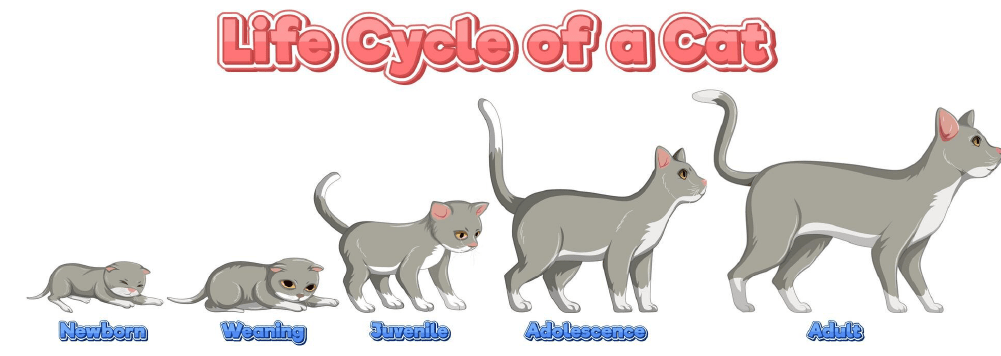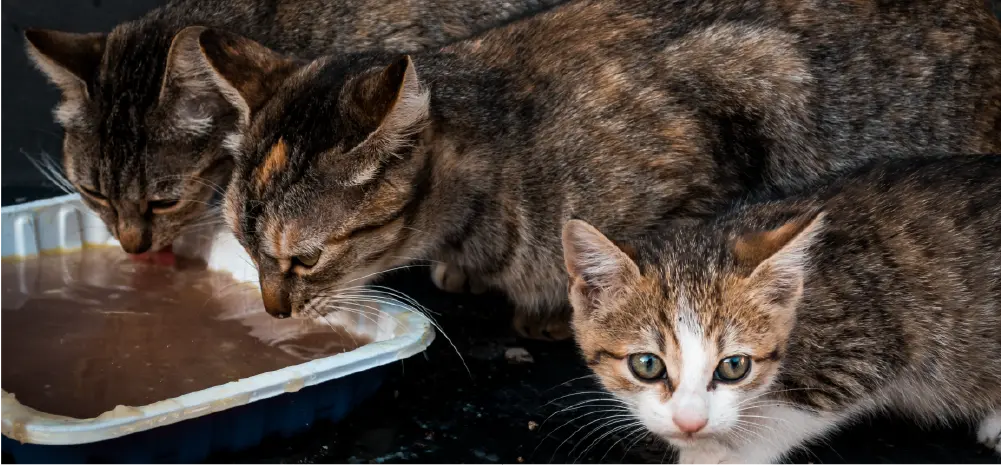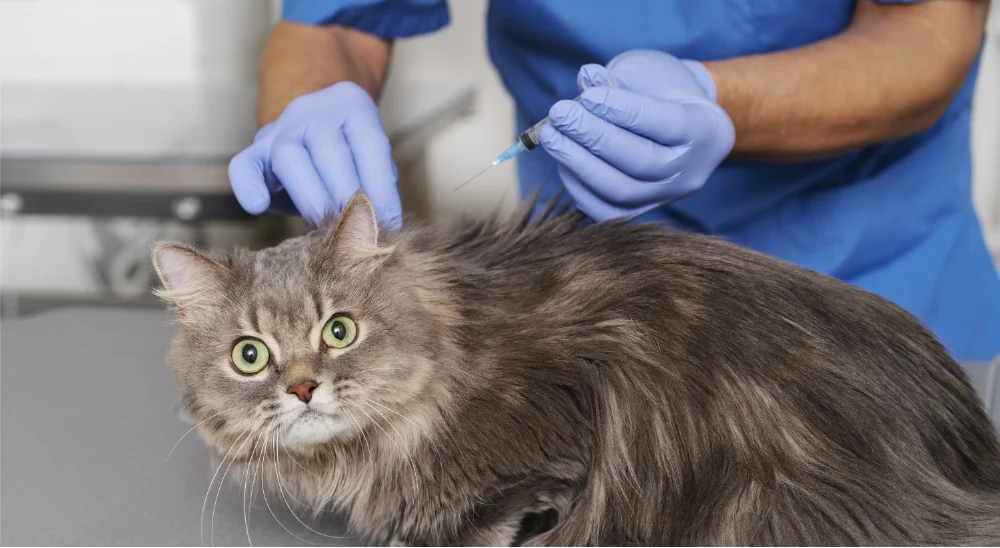For what reason Does My is my cat sneezing? Is It Serious?
Why Is my cat sneezing is a serious question to ask the reason for your cat’s sneezing could be ecological or an illness. Sometimes a cat sneezes due to some natural things like residue, shape, or dust. At the point when breathed in, the cat sneezes. In these cases, sniffling is typically not serious, particularly whenever found in a disconnected episode.
Why Is My Cat Sneezing?
Purposes behind sneezing In the wake of checking on your cat’s side effects, your veterinarian could promptly think of a reason if the feline is sniffling regularly. A disease is one of the essential reasons for a sniffle.
To affirm a sickness, the veterinarian may every so often eliminate an example from the nose, mouth, throat, or eyes and give it to a lab. Other incessant motivations behind why felines sniffle are breathed in allergens or aggravations. bacterial, contagious, or viral diseases. All things considered, your feline has a respiratory sickness if it’s sneezing.
herpes virus in cats. Cats who come into contact with other infected cats can contract herpes. Both a flare-up and spread to other cats can be brought on by stress. The goal of treatment is to manage the symptoms. Humans cannot contract the feline herpes virus.
Calicivirus in cats. Cats are very susceptible to contracting this virus. The most prevalent issue is mouth ulcers, but they can also harm the respiratory system and possibly result in pneumonia.
Reasons Why Is My Cat Sneezing?
The multitude of underlying reasons for cat sneezing presents another challenge to diagnosis. These are a few potential underlying reasons why cats sneeze.
1. Infections with respiratory viruses in cats
A cat that sneezes frequently may have an upper respiratory viral illness. Cats herpesvirus infection is the most common. Herpesvirus in cats mostly produces upper respiratory symptoms, such as sneezing and fluid from the eyes and nose, in contrast to human herpesvirus. Stress might make feline herpesvirus symptoms worse.
2. Infections by Bacteria
Upper respiratory problems in cats are almost invariably linked to bacterial infections. If your feline wheezes and you notice green or yellow snot emerging from their eyes or nose, this release is oddly shaded and demonstrates bacterial contamination.
Mycoplasma, chlamydia, and Bordetella are the three most predominant microbes that cause nose contamination in felines. Anti-toxin treatment can essentially reduce a cat’s sneezing alongside different side effects, working on their breathing solace.
3. Ailment and Aggravation
Your feline might wheeze exorbitantly because of nasal uneasiness and irritation. Various ailments and illnesses can have auxiliary aggravation. Wheezing in felines is many times a consequence of irritation, which can prompt an endless loop by which felines sniffle even after the first issue has been settled. Usually, this is called persistent rhinitis.
4. Inappropriate Content
Breathing in foreign objects like grass blades might irritate the nasal passages. A cat’s body reacts to inhaling these invaders by making a sneeze to release the foreign matter. Although this method might be effective for smaller particles, such as dust, cats find it difficult to sneeze out larger items.
These circumstances can be identified as:
- Rhinoscopy: A cat given anesthesia has a camera put into its nose.
- Nasal flush: While the cat is sedated, sterile saline is pushed down the nasal passages to eliminate material the cat cannot get to sneeze out.
5. Dental Illness
Cat sneezing can also be caused by dental disease. On the upper jaw, the nasal passages are directly adjacent to the tooth roots. The seal between the root of a tooth and the nasal passage can be broken when teeth get infected or when there is extreme inflammation.
6. Neoplasia, or cancer
Tumors within the nasal tube can cause irritation and inflammation, which in turn causes the cat to sneeze, frequently resulting in blood and nasal discharge, especially in elderly cats. The most common methods for visually detecting these malignancies are rhinoscopy and nasal biopsies.
7. Infections with Fungi
Cat sneezing has been linked to fungal infections, although they are less common than bacterial or viral diseases. Typically, a fungus known as Cryptococcus is suspected.
A rhinoscopy or biopsy is typically necessary for a diagnosis as a physical examination is insufficient to differentiate a fungal illness from other possible causes of feline sneeze outbreaks.
Treatments To Stop Cat from Sneezing
Instructions to Treat a Sniffling Feline Treatment for feline wheezing is commonly designated as the basic reason. While a wide assortment of therapies are accessible, pet guardians ought to know that the objective by and large, particularly in constant cases, is to diminish the recurrence and seriousness of side effects — not to fix them.
Antibiotics Albeit bacterial diseases are seldom the essential issue for a sniffling feline, anti-infection agents are frequently utilized for such cases. These medications cheer the feline up rapidly. Nasal Lavage A nasal lavage under broad sedation can ease clinical signs briefly, no matter what the reason. This method can likewise oust stowed away unfamiliar material, if present.
Different Medicines to Secure Your Cat from Sneezing
Different medicines, which have variable degrees of adequacy, include:
- Humidifiers or nebulizers
- L-Lysine
- Steroids
- Antihistamines
- NSAIDs
- Decongestants Hostile to sickness prescriptions
- Medical procedure (in uncommon cases)
Conclusion:
A cat sneezes because there could be a physical issue or even an environmental issue. in some cases, cats sneeze due to dirt particles in the air. and sometimes, a cat feels physically ill, and some diseases could cause a cat to sneeze.
There could be an infection or some respiratory diseases due to which a cat may sneeze. You can stop your cat from sneezing knowingly firstly the reason for it. and then give her medication if there is any disease causing your cat to sneeze.
Faqs
Q. My cat sneezes blood; why is that?
There are numerous possible causes for your cat’s bloody sneezes, including:
- a tumor or growth inside the nose
- Something protruded from their nose.
- shattered nasal skin as a result of frequent sneezing
Consult your veterinarian right away if you see any blood in the cat’s poop to identify the reason and receive treatment.
Q. Could Cats Sneeze from pressure?
Wheezing or upper respiratory signs in felines can indicate stress or sickness. Stress in felines can enact side effects of a viral disease called cat herpes infection, which is extremely normal in felines and exceptionally infectious.
Q. How much Sneezing is a lot for a Cat?
It’s even typical for a feline to have an infrequent sniffling tantrum. Be that as it may, it’s extraordinary for a feline to sniffle a few times each day for a long time.
Q. Could Cat Sneezing be restored?
Other viral diseases that can add to feline sniffling incorporate calicivirus (which the FVRCP combo antibody safeguards against) and flu.
Q. Could Cats have Sneezing assaults?
Feline sniffling fits — where one wheeze is trailed by a few more — or regular sniffling throughout a few days can be brought about by sensitivities.




One Comment on “Why Is My Cat Sneezing? Causes And Treatments”